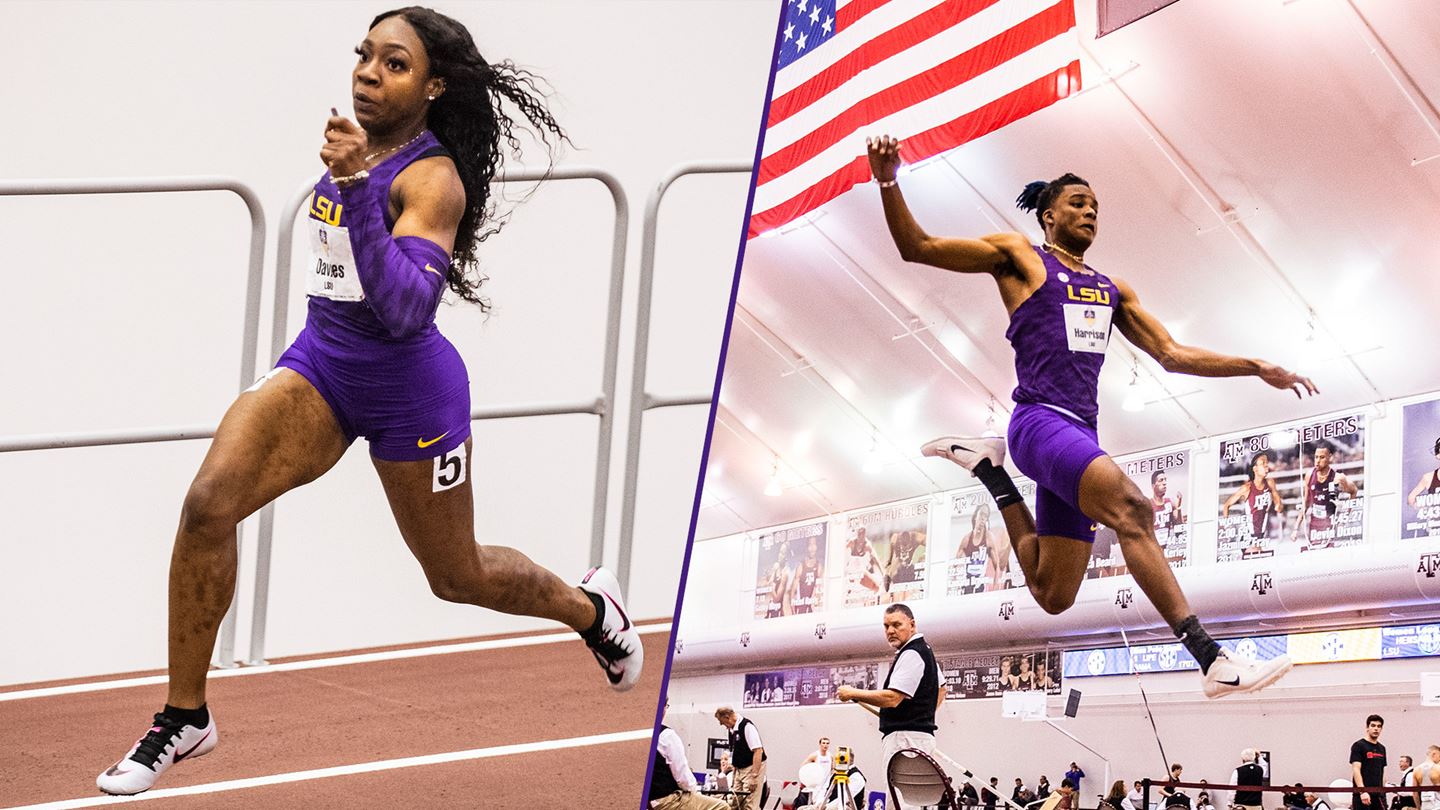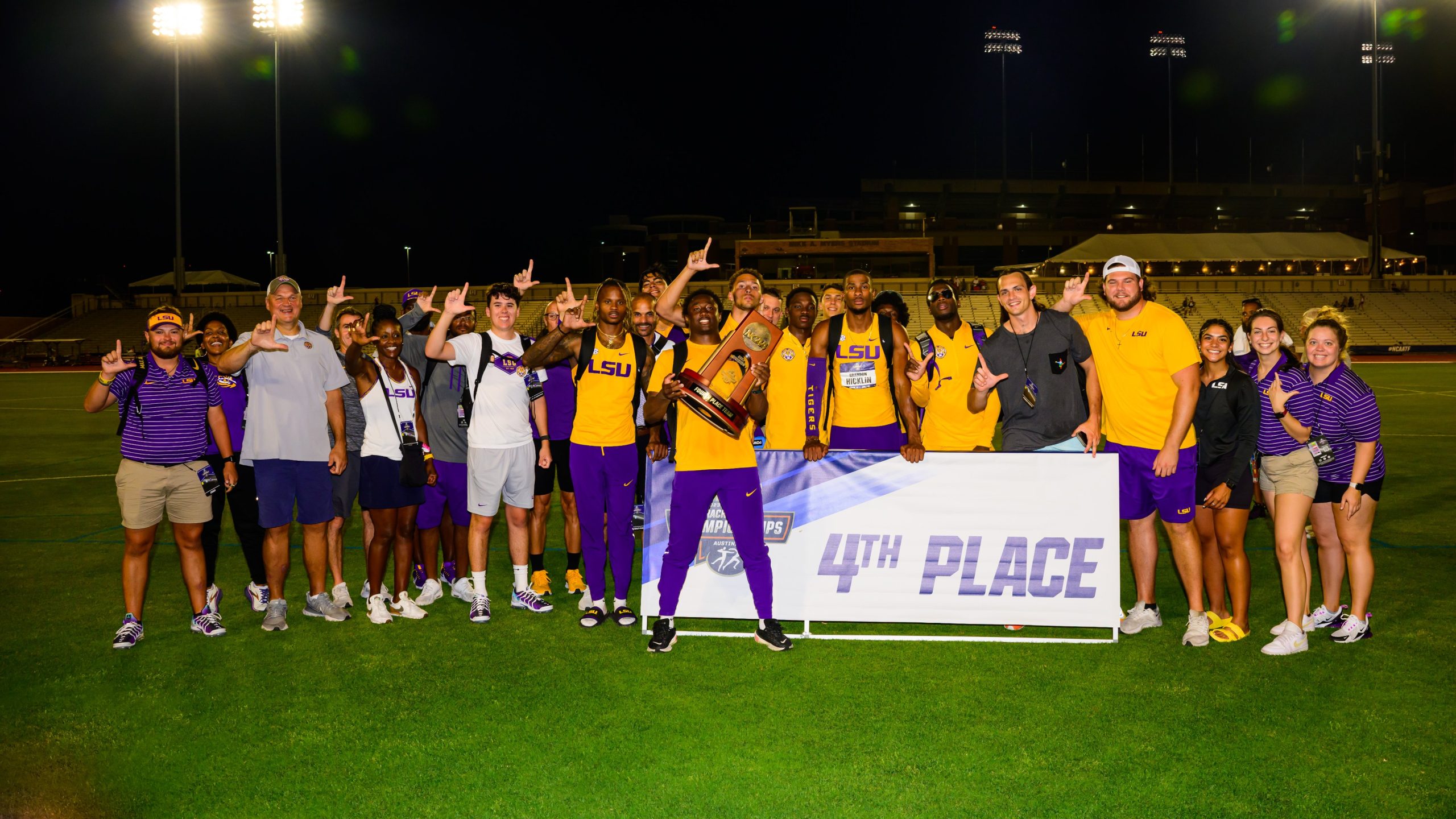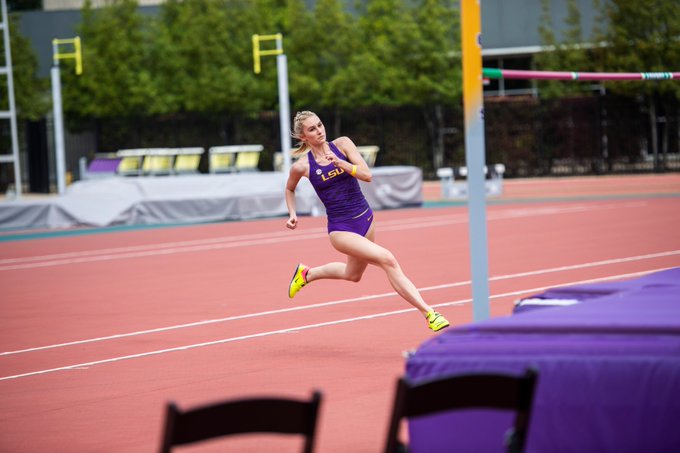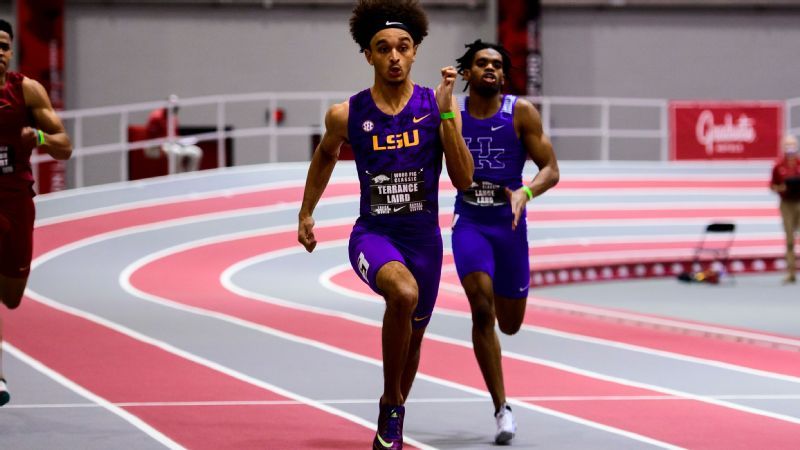
Two weeks later, the empty feeling is still evident.
Long-time LSU track and field coach Dennis Shaver had high hopes for his men’s and women’s teams entering the NCAA Indoor Championships.
They both carried the nation’s No. 1 indoor ranking in what was supposed to be the culmination of the season, only to have the NCAA step in hours before the start of the indoor championships and not only cancel that event, but its subsequent outdoor championships set May 14-16 because of the COVID-19 health scare.
“They made the right decision in cancelling,” Shaver said Friday. “But it was disheartening for all of us to not have that chance and then get on the plane and come home.”
Although he couldn’t bring either of his teams across the finish line, Shaver was honored Friday as the 2020 Division I women’s national coach of the year by the U.S. Track & Field and Cross Country Coaches Association.
It was the third such honor for Shaver, who received similar acclaim in 2008 and 2012.
“There’s so many people that were involved in making this possible,” Shaver said. “We have tremendous support from our administration and support people. The student-athletes that buy in and have that deep feeling about representing LSU the way that we want them to. We’re all going to be stronger when we get out of this.”
LSU’s women covered a tremendous amount of ground to enter the national indoor meet with its lofty ranking.
They opened the season ranked No. 16. Shaver said through the strong efforts of junior long jumper Mercy Abire and junior high jumper Abby O’Donoghue, combined with another strong showing in the sprints and hurdles, they rose in the national rankings where they were ranked first the past four weeks.
“I’m not sure that’s been done before indoors,” said Shaver, also one of three finalists for men’s national coach of the year honors. “We were healthy and ready to go, so it was obviously a huge disappointment for all of us that were involved. Our kids were confident. We were ready to go, especially the women.”
LSU appeared primed to capture the program’s 26th national championship with 11 athletes qualified in a NCAA-high 13 scoring opportunities.
“We had a lot of newcomers, so you don’t know how they’re going to respond,” Shaver said. “I have to give a lot of credit to our upperclassmen. They did a great job of coaching them along for those kind of pressure meets. We knew we were ready when we went to Albuquerque.”
Senior Tonea Marshall hadn’t lost a 60-meter hurdles race all season in setting the school mark (7.86 seconds). O’Donoghue soared to a school record of 6-2 ¼ and was the nation’s leader for several weeks.
Additionally, they had seven other individuals and a relay team ranked inside the NCAA’s top eight marks and projected to score points in the national meet.
“We knew we were going to be strong in the sprints and hurdles, which isn’t anything new for us,” Shaver said. “The difference for us was the other event areas. We had jumpers like Abby and Mercy. They were way up in the rankings and deserved it because they had been so consistent throughout the entire indoor season.
“On top of that, (middle distance) coach (Houston) Franks did a great job with Katy-Ann McDonald in the 800. We were in the mix to score in the middle distances, too. I thought we just had a better overall track team when it came to competing at the national meet. It was great to see how they moved up their rankings as individuals.”
Shaver described a fluid scene at the University of New Mexico where athletes were housed in several different hotels but were scheduled to compete at the Albuquerque Convention Center.
He said the meet was scheduled to begin March 13 with only family and friends in attendance, but later the meet was cancelled which competitors found out first via social media.
“The sad thing is we didn’t get to tell the athletes,” Shaver said. “We had to gather them up and try and put it all in perspective. As the leader of the group I wanted them to understand that what was going on throughout the country was much more important than a track meet.
“The reality was that we shouldn’t have had the track meet. You have athletes from all 50 states there represented in a pretty enclosed environment. The chance if somebody had the virus, that it would spread and then they go home and spread it even worse that it’s occurring now.”
Two days after arriving with his hopes of potentially sweeping the indoor championships, Shaver said it was sobering, having to board an airplane back to Baton Rouge without being able to compete along with the realization that the outdoor season had also been cancelled.
He’s already strongly advocated for the NCAA to restore the eligibility of any senior that lost the opportunity to participate in the NCAA Indoor Championships along with the outdoor season.
“It was very depressing,” Shaver said of the return trip home. “Not only did we find out we wouldn’t be able to make a run at this championship but that we weren’t going to be able to do it outdoors either. That was really a double punch in the gut that still to this day is very difficult to deal with recognizing that we had a great team.”




Be the first to comment